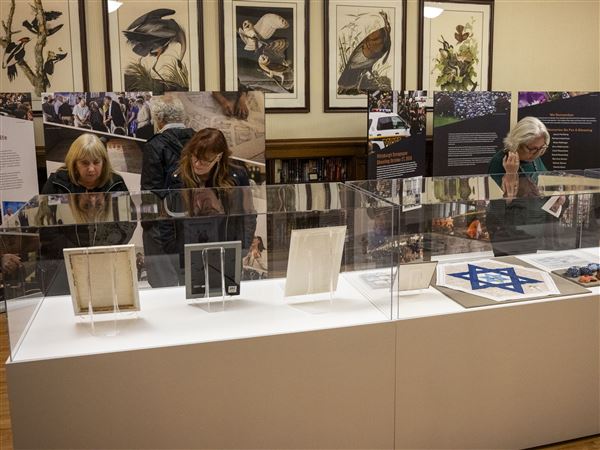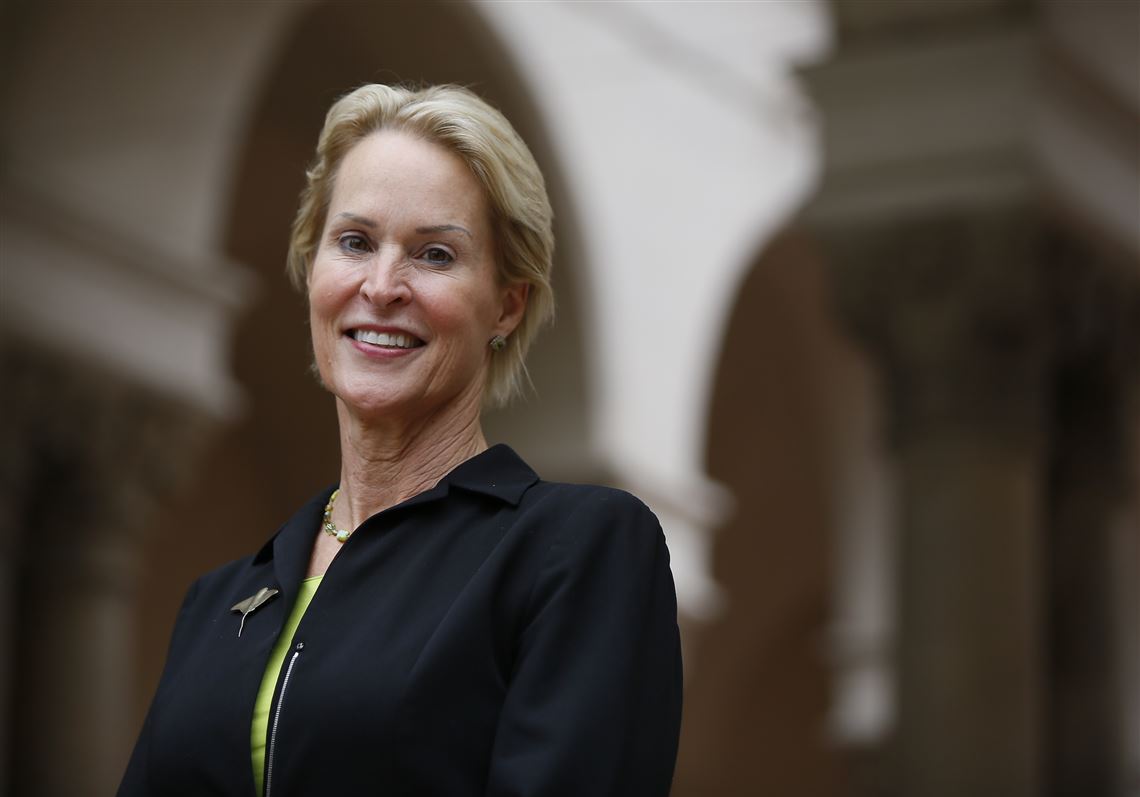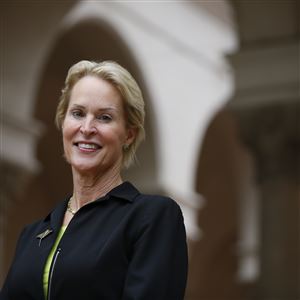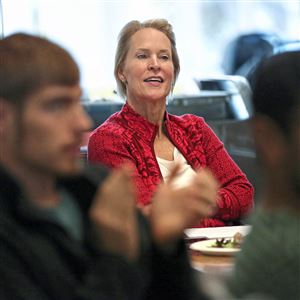A Pittsburgh native is part of a team that won the 2018 Nobel Prize in chemistry.
The prize was awarded Wednesday to Frances H. Arnold, George P. Smith and Gregory P. Winter for their work that harnessed evolutionary principles to create new proteins.
Ms. Arnold, 62, was born and raised in Pittsburgh, and is a professor of chemical engineering, bioengineering and biochemistry at the California Institute of Technology in Pasadena. She won one half of the prize “for the directed evolution of enzymes.”
She is only the fifth woman to win a chemistry Nobel and the first since 2009.
Mr. Smith, at the University of Missouri, and Mr. Winter, at the MRC Laboratory of Molecular Biology in Cambridge in Britain, shared the other half of the prize “for the phage display of peptides and antibodies.”
“This year’s prize is about harnessing the power of evolution,” said Göran K. Hansson, secretary general of the Royal Swedish Academy of Sciences, to reporters in Sweden. The scientists used evolutionary techniques in the laboratory to create powerful biological enzymes, molecules that speed up chemical reactions, and other important molecules.
Joining a press conference with reporters by phone, Nobel winner @francesarnold was asked what “playing with evolution” means.
— Rebecca Robbins (@RebeccaDRobbins) October 3, 2018
“I get that question a lot,” she said.@meggophone reports: https://t.co/ZbgNYS3Gdf
Ms. Arnold’s work, which has been utilized to create sustainable biofuels, is “contributing to a greener world,” the academy added.
“Her work is incredible,” said Matt Hartings, an associate professor of chemistry at American University in Washington, D.C.
Mr. Hartings said the proteins that Ms. Arnold designed “do these really off-the-wall chemical things in record time.” He said her directed evolution approach has greatly helped chemists make enzymes do jobs that nature never intended, such as for industrial purposes.
Mr. Hartings said her recent development of an enzyme that can promote chemical reactions involving silicon was a startling accomplishment, “completely bonkers.”
Caltech Professor Frances Arnold survived breast cancer, raised three boys after the deaths of their fathers (biochemical engineer Jay Bailey and astronomer Andrew Lange), and today won the Nobel Prize.
— Bryan Gaensler (@SciBry) October 3, 2018
Brace yourself for what is likely to be a very moving acceptance speech.
Ms. Arnold, who was en route to a news conference at Caltech on Wednesday afternoon and not immediately available for a phone interview, said in an email that she grew up in Edgewood, Shadyside and Squirrel Hill before attending Princeton.
“[I] worked at Walt Harper’s Attic and drove a taxi for the Yellow Cab Company of Pittsburgh when I was in high school (or recently graduated),” she wrote.
But Ms. Arnold, a 1974 Allderdice High School graduate, confirmed that she had a rebellious streak as a teen. She still has a stack of truancy notices, she said in a statement to KDKA-TV, through a Caltech spokeswoman.
“I didn’t take chemistry then,” she said. “I was too busy cutting classes.”
Her improved molecules have a wide range of applications, including brain imaging, environmentally friendly detergents, biofuels and pharmaceuticals, said biochemist Sara Snogerup Linse, a member of the chemistry committee.
Frances Arnold, awarded the 2018 #NobelPrize, conducted the first directed evolution of enzymes, which are proteins that catalyse chemical reactions. Enzymes produced through directed evolution are used to manufacture everything from biofuels to pharmaceuticals.@francesarnold pic.twitter.com/TGRxgjEHzv
— The Nobel Prize (@NobelPrize) October 3, 2018
The award was for chemistry, but the work has wide applications throughout biology and engineering. Ms. Arnold is one of the few people to be a member of the exclusive National Academy of Sciences, National Academy of Medicine and the National Academy of Engineering.
The Nobel Prize tweeted “Frances Arnold, awarded the 2018 #NobelPrize, conducted the first directed evolution of enzymes, which are proteins that catalyse chemical reactions. Enzymes produced through directed evolution are used to manufacture everything from biofuels to pharmaceuticals.”
Post-Gazette staff writer Matt McKinney, The Washington Post, The New York Times and the Associated Press contributed to this report.
First Published: October 3, 2018, 12:12 p.m.
Updated: October 3, 2018, 7:02 p.m.



















